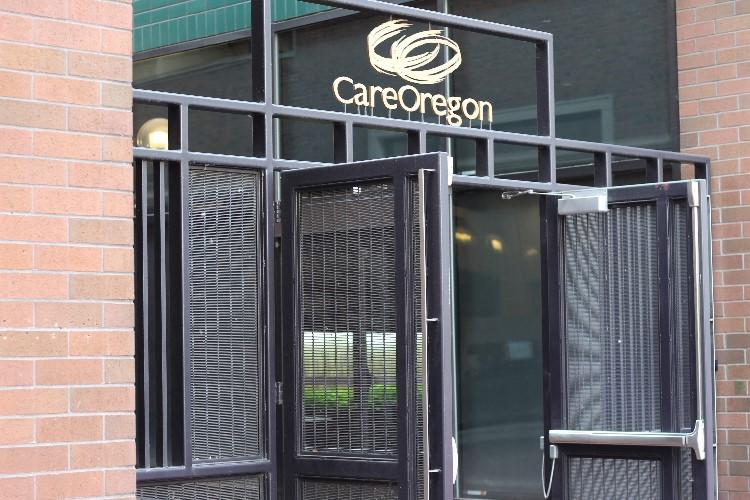
This summer, CareOregon has continued funding for community-based organizations that focus on housing and adverse childhood experience (ACEs) as key determinants for health and well-being. A total of $215,000 was granted to six social services organizations that provide housing services and programming to address ACEs in children and families.
"CareOregon’s award will support at-risk Latinx youth to achieve academic excellence by addressing and supporting their social-emotional needs,” says Bridget Cooke, co-founder and executive director of Adelante Mujeres.
Program participant Jessica adds, “I'm in 12th grade. I've been in the program since middle school. It's given me a safe space where I feel like people can come and truly be themselves.”
CareOregon serves more than 275,000 Oregon Health Plan (Medicaid) members through its affiliation with three Coordinated Care Organizations (CCOs). Its vision of making health care work for everyone includes addressing the social and economic issues that have a major impact on our community’s health and entire health care system.
“Luke-Dorf’s Bridgeview Transitional Housing program has benefited greatly from enhanced nursing thanks to grants from CareOregon,” says Lindsay Downen, clinical director at Luke-Dorf. “We have been able to better communicate with specialist medical providers, hospice providers and primary care providers so the special needs of our most vulnerable population can be addressed with greater ease. CareOregon supports our belief that sustained housing is sustained health and that everyone benefits, from those who receive services to the public at large.”
“Good health means more than just treating people with prescriptions and bandages when they’re ill or injured,” says Jeremiah Rigsby, chief of staff at CareOregon. “All the medical treatment we can give in the clinic and hospital can be made ineffective — and often is — if the patient’s basic needs, such as food, housing and shelter, are not being met. We also have a greater understanding that a lifetime of negative physical, mental and societal effects can come from childhood trauma. Addressing these social and economic factors can have a positive impact on the work our physical, behavioral and oral health professionals are doing.”
The six funded proposals reflect the diversity of CareOregon’s service areas and membership. The projects or programs benefit members and organizations located in Jackson, Columbia, Multnomah and Washington counties. Two of the organizations, located in Washington County, are culturally specific and focused on Latinx families and youth.
The grants awarded this summer include:
- Adelante Mujeres (Washington County) — $40,000 to support salaries and training for programs providing education and empowerment opportunities for low-income Latinx youth, including assisting in reducing school absences, building healthy lifestyle habits, graduating from high school and attending college. For five years, Adelante Mujeres has maintained a 100% graduation rate for 12th grade girls in the program.
- Addictions Recovery Center (ARC) (Jackson County) — $30,000 for salaries and direct client assistance to scale up prevention services for families in residential and transitional housing facilities. The mission of ARC is to provide individuals and their families the chance for a healthier way of life through education and supportive relationships, so they may recover from the disease of addiction.
- Bienestar (Washington County) — $40,000 to support Promotores Program. Bienestar provides quality, affordable housing for low-income, Latinx immigrant families to help build a pathway to a better future. The Promotores Program provides on-site information and referral services to residents. CareOregon funding will support an on-site coordinator who will train three residents of Willow Creek Crossing to do home visits and coordinate events.
- Luke Dorf (Multnomah County) — $40,000 to double registered nurse time allocated to Bridgeview Enhanced Nursing Program, which serves adults who have a serious mental health diagnosis as well as current or imminent risk of homelessness.
- Northwest Regional Education Service District (Columbia County) — $25,000, plus an additional $25,000 from Fall 2019 grants budget, contingent upon meeting certain conditions. CareOregon funding will support: facilitation, materials and food for quarterly meetings; expert presenters; an Implementation Coach; and small district training stipends for the Trauma-Informed Care/Adverse Childhood Experiences (TIC/ACEs) Learning Collaborative. The county-wide effort aims to create a culture of care across five school districts, address social determinants of health that have impacts on both health and educational outcomes and reduce the effects of ACEs on students and communities.
- Portland Homeless Families Solutions (Multnomah County) — $40,000 to scale up the Homelessness Prevention Program. The program helps families in the Portland area keep their housing in times of emergency like a car breakdown, medical emergency, or sudden loss of hours at work. Targeted families face imminent homelessness due to a 72-hour eviction notice for non-payment of rent or utilities.
Since 2016, CareOregon has awarded community nonprofit organizations nearly $4 million through its competitive grants program. This program and other community outreach efforts are an important part of fulfilling CareOregon’s mission of improving the health of its communities.
For information, contact Elise Burke, 503-416-3736, [email protected].